Abstract
Transumbilical single-port laparoscopic surgery (SPLS) is a newly emerged and rapidly evolving, minimally invasive treatment method. Transumbilical SPLS produces minimal parietal injury and can achieve cosmetic advantages by reducing additional trocar placement. The in-line or chopstick arrangement of laparoscopic instruments can make the operative procedures somewhat strange and inconvenient at first, but experienced laparoscopic surgeons can achieve the same coverage as conventional laparoscopic surgery with time. Here, we report the first case of transumbilical SPLS anterior resection (SPLS-AR) with transanal retrieval of aspecimen and intracorporeal single stapling anastomosis. The operating time was 270 min. There were no intraoperative or postoperative complications. Transumbilical SPLS resulted in a 1.5-cm wound with early recovery. Transumbilical SPLS-AR with transanal retrieval and intracorporeal anastomosis for sigmoid colon cancer is feasible by experienced laparoscopic colorectal surgeons based on careful evaluation and selection of patients. This operation fulfills both oncological principles and cosmetic demand.
References
1. Law WL, Lee YM, Choi HK, Seto CL, Ho JW. Impact of laparoscopic resection for colorectal cancer on operative outcomes and survival. Ann Surg. 2007; 245:1–7.

2. Poon CM, Chan KW, Lee DW, Chan KC, Ko CW, Cheung HY, et al. Two-port versus four-port laparoscopic cholecystectomy. Surg Endosc. 2003; 17:1624–7.

4. Nguyen NT, Reavis KM, Hinojosa MW, Smith BR, Wilson SE. Laparoscopic transumbilical cholecystectomy without visible abdominal scars. J Gastrointest Surg. 2009; 13:1125–8.

5. Whiteford M, Denk P, Swanstrom L. Feasibility of radical sigmoid colectomy performed as natural orifice transluminal endoscopic surgery (NOTES) using transanal endoscopic micro-surgery. Surg Endosc. 2007; 21:1870–4.
7. Jayne DG, Guillou PJ, Thorpe H, Quirke P, Copeland J, Smith AM, et al. UK MRC CLASICC Trial Group. Randomized trial of laparoscopic-assisted resection of colorectal carcinoma: 3-year results of the UK MRC CLASICC Trial Group. J Clin Oncol. 2007; 25:3061–8.
8. Lacy AM, Delgado S, Rojas OA, Almenara R, Blasi A, Llach J. MA-NOS radical sigmoidectomy: report of a transvaginal resection in the human. Surg Endosc. 2008; 22:1717–23.

Fig. 1.
At colonoscopy, an ulcerofungating moderately differentiated adenocarcinoma measuring 3.5×3.5 cm was seen in the sigmoid colon.
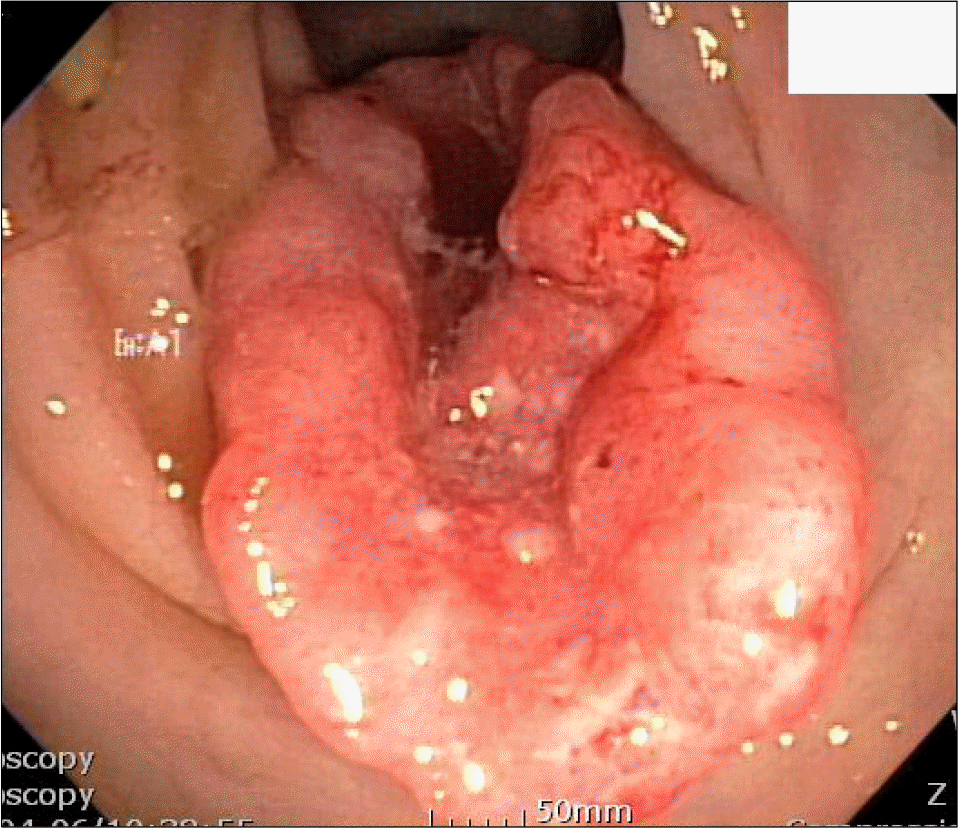
Fig. 3.
Intracorporeal procedures: proximal and distal stump ligation (A). Proximal and distal stump cutting (B). Transanal specimen retrieval (C). Purse-string sutures put into the proximal and distal stumps manually (D). And end-to-end anastomosis with an end-to-end anastomosis (EEA) stapler (E).
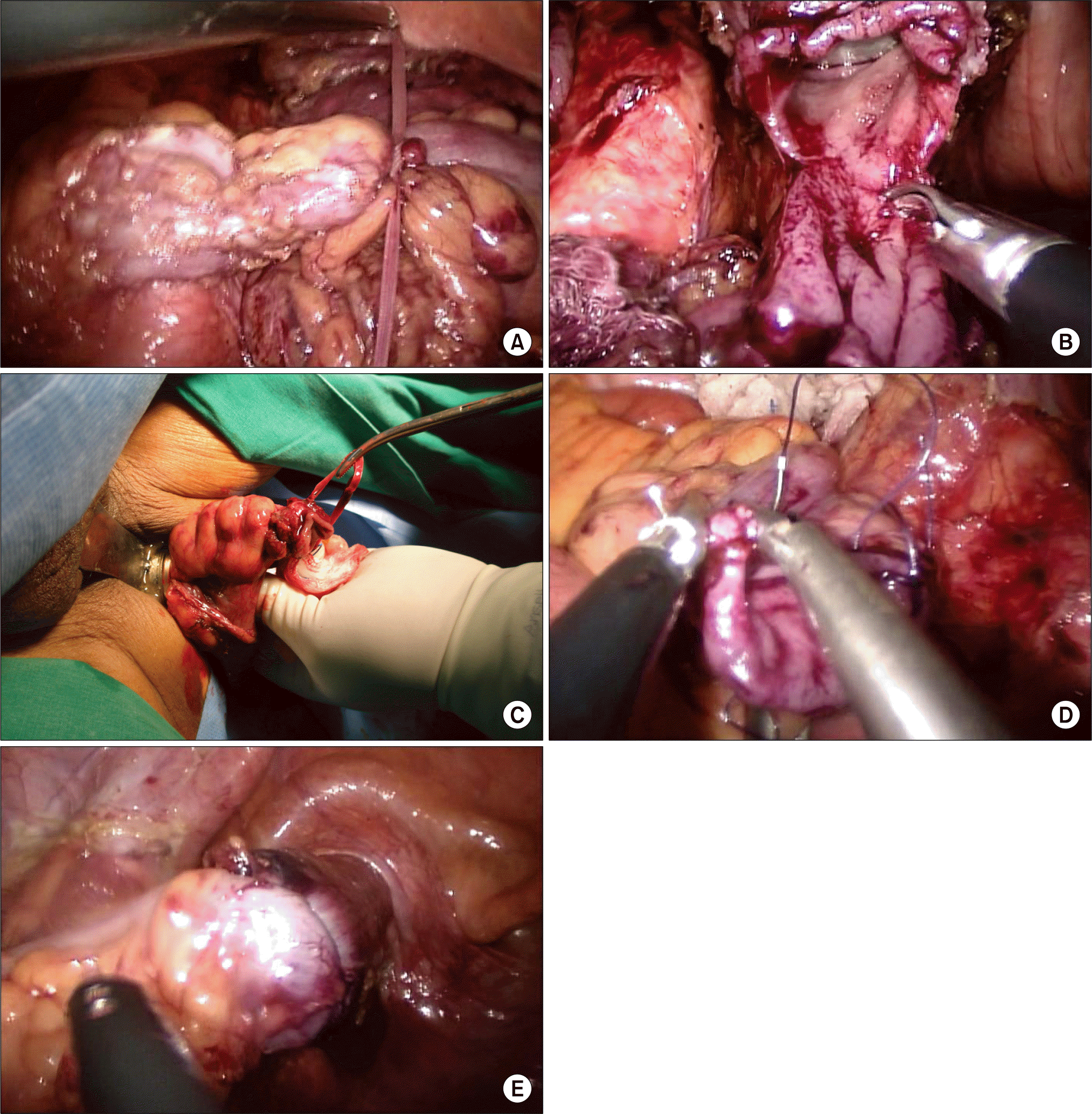
Fig. 4.
Transluminal (transanal) traction using PPH (procedure for prolapsed and haemorrhoids) for countertraction during colonic dissection (A) and setting the anal trocar (B).
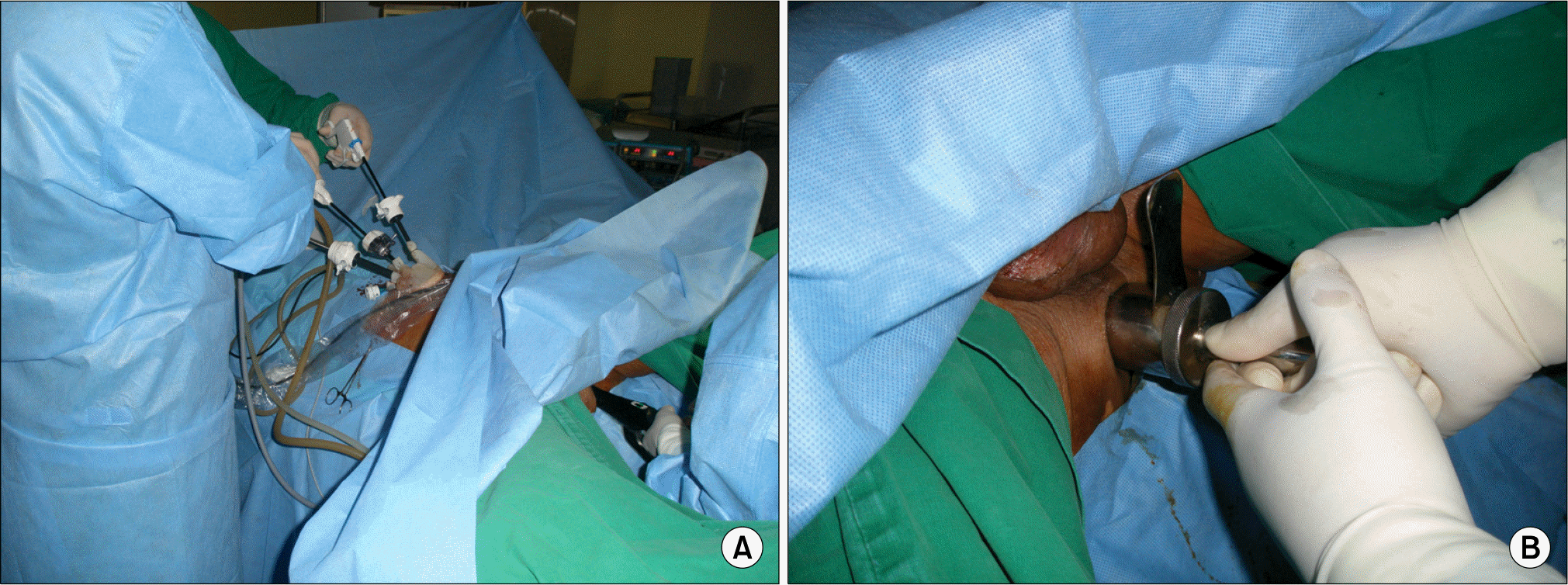




 PDF
PDF ePub
ePub Citation
Citation Print
Print


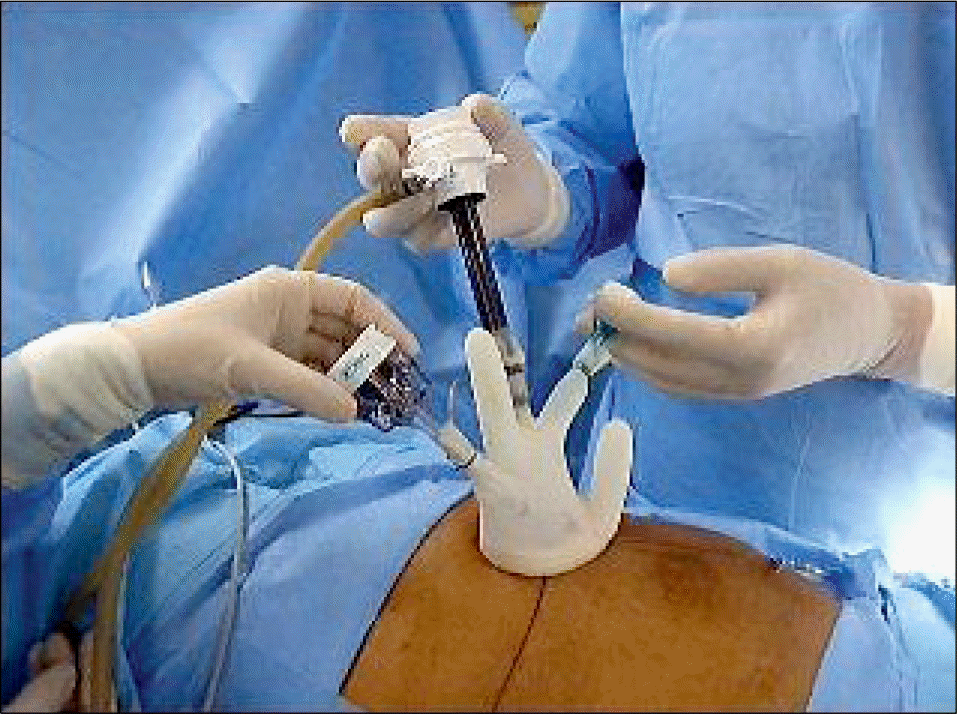
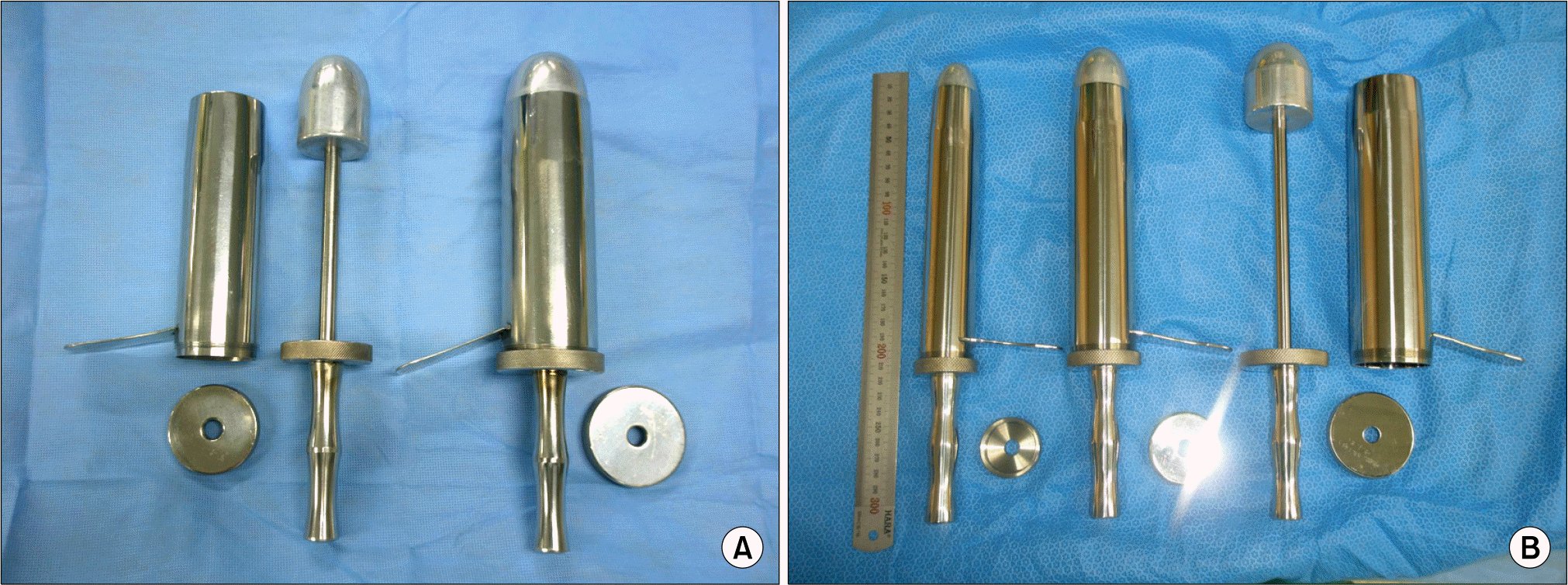
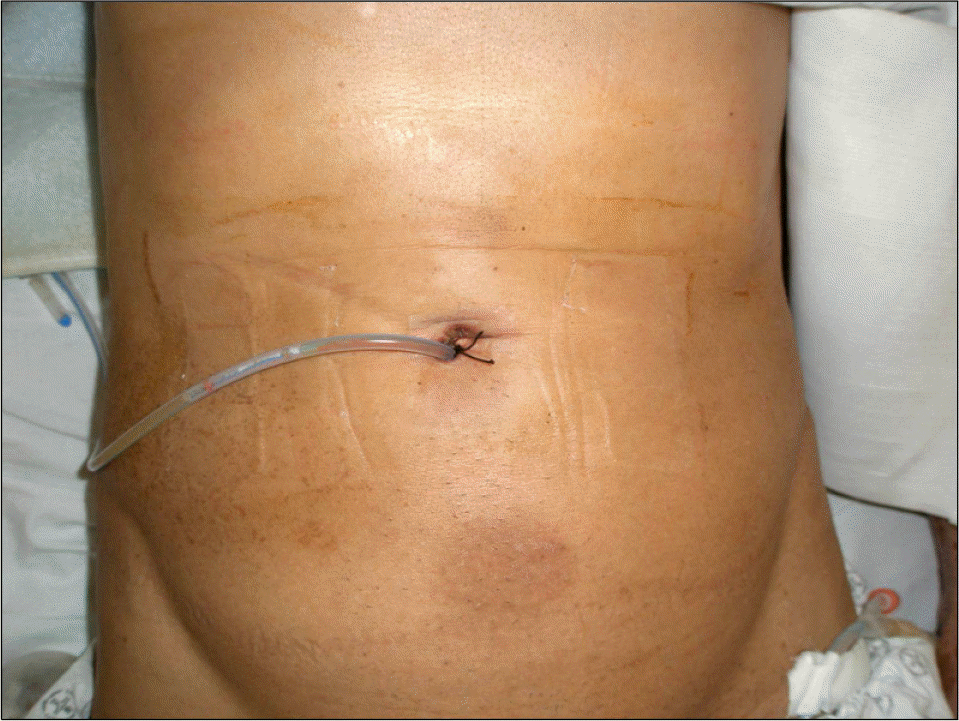
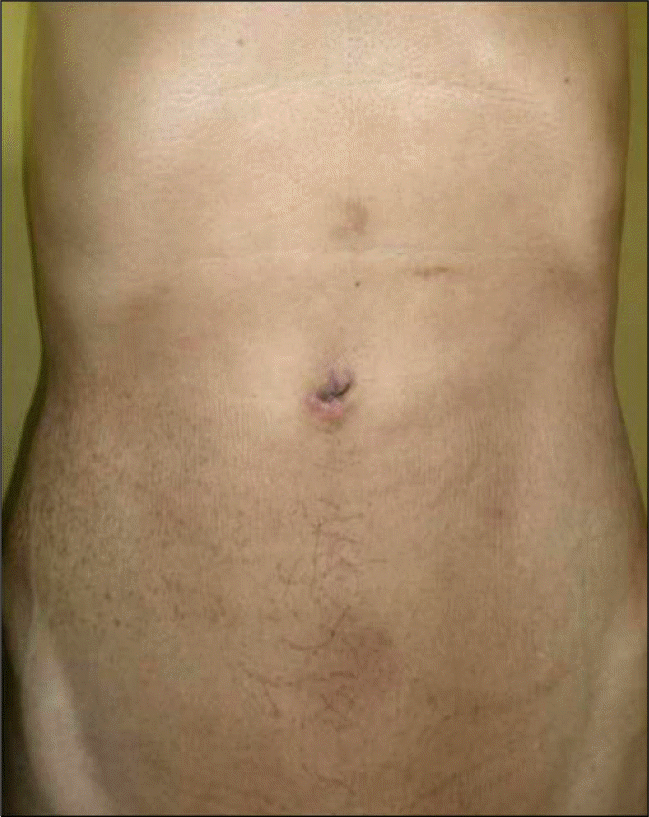
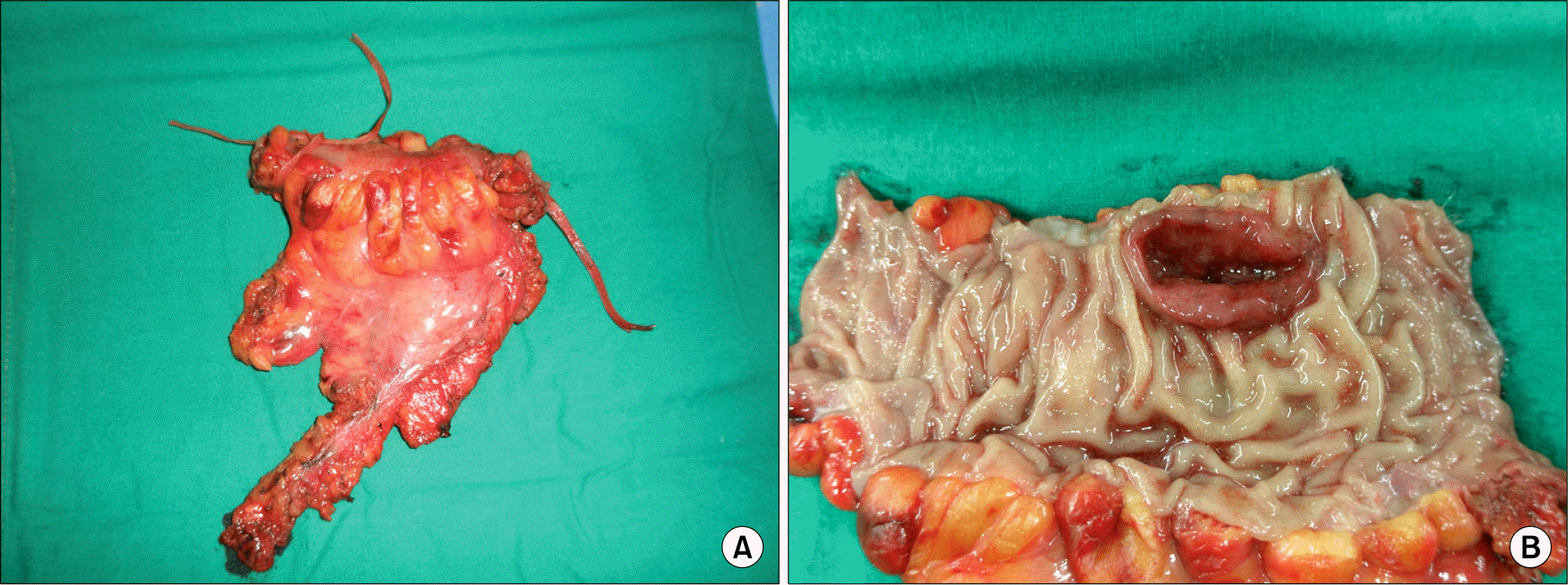
 XML Download
XML Download